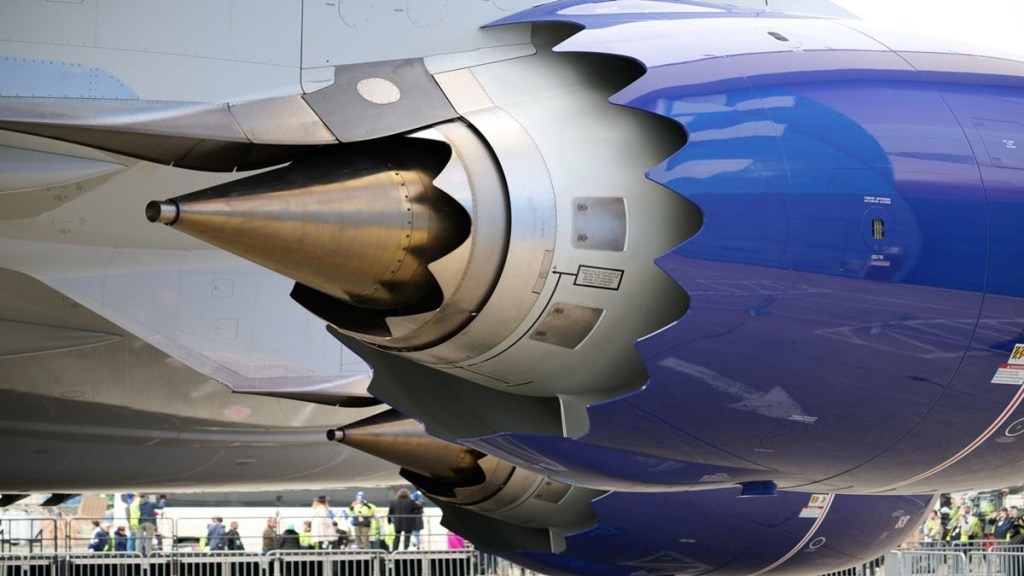French aircraft manufacturing giant Airbus had already taken a vast lead over its US-based rival Boeing in the Indian aviation market. The distance between the two just got wider, with the mammoth 500-plane deal between Airbus and IndiGo on Monday.
The latest order means Boeing has received just about a third of the new aircraft orders from airlines in India in the last 18 months. Over the last decade, Boeing’s market share in India has dropped to nearly half — 23% by the end of 2022 compared to the 53% clocked in 2013 — according to London-based global fleet data and travel analytics research provider Cirium.
Given that the numbers exclude Air India’s 470-plane order (with a top-up option of 70 planes for Boeing) and Indigo’s 500 as they were signed this year, an analyst said “it proves beyond doubt that Airbus is now the undisputed king of the Indian airspace”.
Air India formally signed the deal with Airbus and Boeing at the Paris Air Show on Tuesday.
One reason for the dominance of Airbus is its strength in narrow, single aisle planes. Boeing has been pushing for large, wide-body, double aisle aircraft. But more than 80% of India’s aviation market is still narrow body.
Can Boeing make a comeback? The answer is hazy here. It’s true that Air India, along with Air India Express, Air India Cargo and Vistara, still remains the largest user of Boeing planes. While Air India’s order favours Airbus with 250 jets, of which 210 will be A320neo family aircraft, the strong emphasis on Boeing (up to 290 planes) shows that all isn’t lost yet.
Besides, all of SpiceJet’s aircraft inventory is also Boeing, many of which formerly flew under Jet Airways colours before the full-service carrier went bust in 2019.
The fleet of Rakesh Jhunjhunwala-floated low-cost carrier Akasa Air is also exclusively Boeing. The Mumbai-based airline had placed orders for 72 aircraft in late 2021 and is now firming up plans to place more, having inducted 20 planes. The company, however, recently said it is open to options outside of Boeing too.
Richard Evans, senior consultant, Ascend by Cirium, said Boeing had the majority of the fleet at Jet Airways, prior to the carrier’s bankruptcy. When Jet ceased flying, it affected the plane maker’s market share badly, dropping from 37% at the end of 2018 to 27% at the end of 2019.
The worldwide grounding of 737 Max aircraft between March 2019 and December 2020 following two crashes that led to 346 deaths, followed by supply chain issues crippling production, also led to lower demand for Boeing.
Because of several training centres from the French giant, it is easier to get Airbus pilots in India than those who can fly Boeing planes. This is also a reason for demand skewing towards Airbus, as it is far more efficient to train pilots and cabin crew locally than abroad.Airbus’s dedicated training centres in India have a capacity for over 800 pilots a year.
“If Boeing wants to attain significant market share, they should invest in training as well,” said Lalitya Dhavala, valuations consultant, Ascend by Cirium.
Evans said if Boeing is to regain share, it will need to gain significant single-aisle orders, as this is the sector which Airbus has been dominating in recent years with the A320neo family. “If IndiGo remains with Airbus, and Air India/Vistara shares orders between the two manufacturers, Boeing would need to win the lion’s share of orders from new entrants such as Akasa Air,” he said.
An email sent to Boeing India for comments remained unanswered. On June 17, the US-based plane maker said South Asia’s aircraft fleet will expand more than 7% annually, the world’s fastest rate, with India accounting for more than 90% of the region’s passenger traffic. The global demand is expected to swell to 42,600 by 2042.

